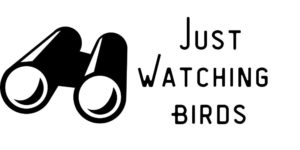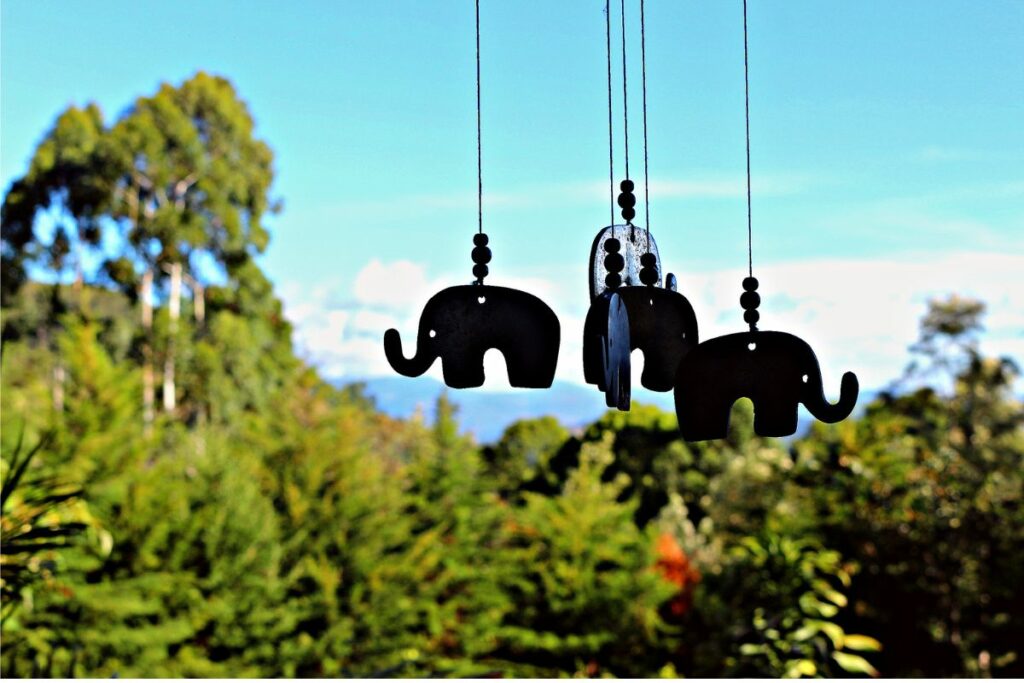As an Amazon Associate, we earn from qualifying purchases with no additional costs for you.
When it comes to sowing a new lawn, most beginners think all you have to do is plant the seeds, sit back, and relax. As it turns out, the whole process is a little more complicated than that. And not least because you have to figure out how to keep birds from eating grass seed from your new lawn!
Try these 6 effective methods to keep birds from eating grass seed and to keep your lawn safe:
- Confuse the birds with barriers
- Use organic mulch
- Cover the seeds with sheets and netting
- Scare the birds away
- Distract unwanted birds
- Use Bird-repellent grass seeds
You can’t always count on being there to shoo the birds away. But your absence is no excuse for a bleak landscape. In fact, with a little bit of effort, you can have the nicest lawn in the whole neighborhood.
TIP: If you want to check out the best pair of binoculars for bird watching, we recommend a pair of waterproof and fog-proof 8 x 42 binoculars like the Celestron – Outland X 8×42 Binoculars (Amazon link).
How to Keep Birds from Eating Grass Seed: Tips and Tricks
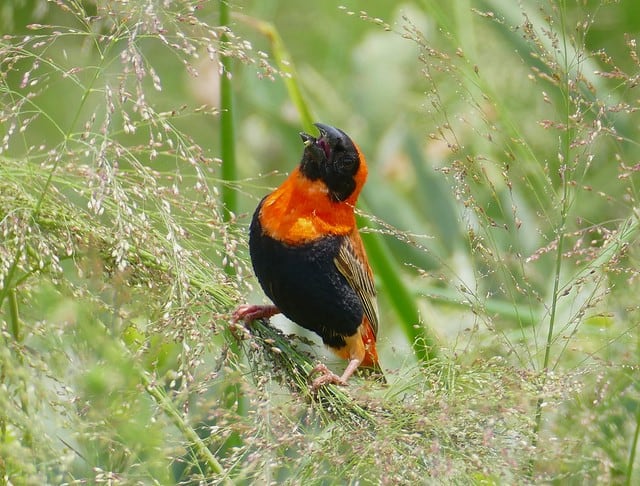
Having done your research, you’re pretty confident in your ability to sow a new lawn, which is why you’ve gone ahead and purchased grass seed.
The timing is just right. Your chosen soil is ideal for the climate you live in, and your ground is expertly prepped. There’s just one thing you forgot to take into consideration:
Birds, and their irrepressible hunger for grass seed!
TIP: Knowing how to spot the birds in your yard is key to enjoying visits from your winged friends as much as possible! The best sources are trusted books, I recommend using the following (Amazon links):
– National Geographic Field Guide to the Birds of North America
– National Audubon Society Birds of North America
So, now you’re searching for the answer to how to keep birds from eating grass seed. But don’t worry, because there’s hope.
As soon as you sow your new lawn, your garden is going to become a buffet for all the neighborhood birds.
But just because birds are drawn to grass seed doesn’t mean that you’re automatically on the losing side.
There are plenty of tried-and-tested methods you can employ to keep your grass seed untouched:
1. Confuse The Birds
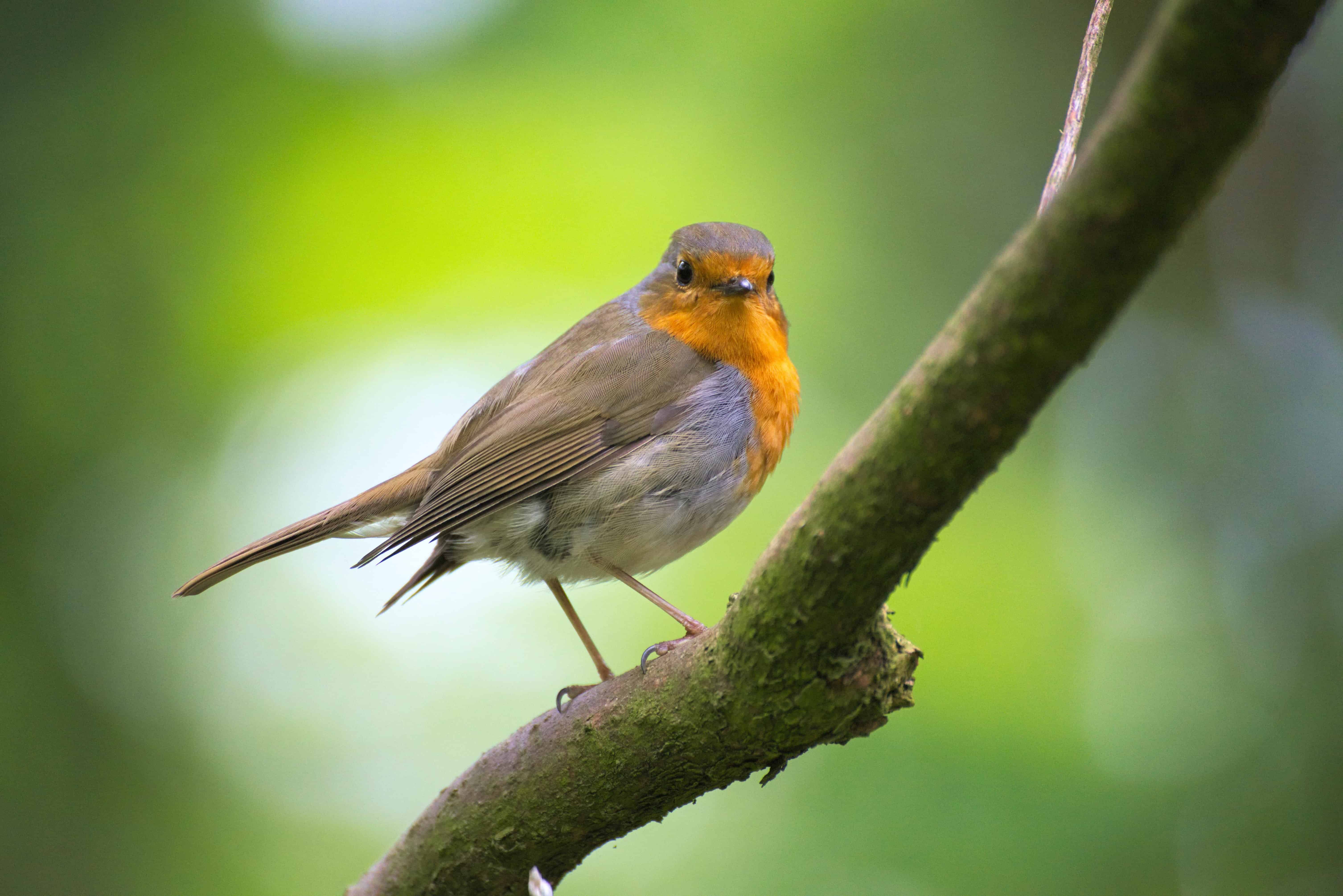
Our first trick for how to keep birds from eating grass seed? Confuse them!
By placing a physical barrier between the birds and your fresh lawn, you can stop the seed thieves in their feathered tracks.
Plus, physical barriers don’t need to be anything fancy. Physically stopping birds from reaching your grass seed can be as simple as mulch, burlap sacks, or netting.
2. Use Organic Mulch
Mulching, which involves the use of biodegradable items like compost, straw, or cut grass, is a common method to prevent birds from eating grass seed. Besides keeping your grass seed safe, mulching also helps them germinate by retaining moisture and acting as a weed inhibitor.
When it comes to mulching, most people like to use straw or hay because it’s lightweight and easy to spread.
Luckily, the process is pretty simple:
- Lay some straw atop your newly planted grass, covering about 75 percent of the seeds.
- For best results, rake the seeds about an inch into the ground before covering them with straw.
- Because seedlings need sunlight, remove the straw as soon as your grass seed starts to germinate.
- When removing your mulch of choice, the key is to be as gentle as possible.
3. Cover The Seeds
If your area is wind-blown or if your local birds are smart enough to peck away the mulch, use these tried and tested solutions. If you don’t have any of these products on hand, use plastic sheets or bed linens in a pinch.
Burlap Sheets
Use burlap if the thought of removing straw by hand sounds like a waste of your time. Laying down burlap is even easier than mulching with hay or straw!
- Lay a sheet of burlap over the seeds, anchoring it with wire landscape pins to keep it in place.
- As with mulch, remove the burlap when the seeds start to germinate.
Netting
Feeling unsure about covering your newly planted yard with mulch or burlap? If so, netting might be the answer.
- Using stakes, raise the netting two or three inches above your newly seeded lawn to ensure that the birds can’t peck at it through the holes.
- Secure the edges with stones or landscape pins.
Floating Seed Cover
Alternatively, you can use a floating seed cover. Floating covers are generally very light, which means that they don’t put undue pressure on the seeds.
4. Scare The Birds Away From Your Grass Seeds
Still not sure how to keep birds from eating grass seed from your lawn? Take advantage of their own nature!
Just think about it: Every time you get close to a flock of birds, they fly away.
So, the solution is obvious. Scare the birds away from your vulnerable grass seed with few easy tricks:
Domestic Pets To Scare Away Birds
If you have pets, let them roam outside. It’s an effective defensive technique against birds and a fun game for your dog or cat.
However, if you’re not an animal person, don’t feel pressured into borrowing or adopting one just for the sake of growing picture-perfect grass.
Instead, invest in fake predators, such as a decoy owl or hawk, and place them on a fence or the edges of your lawn. If you don’t have anywhere to perch a fake bird of prey, rubber snakes are also a good option. They’re cheap and readily available in dollar stores all across the country.
However, keep in mind that birds are pretty smart. If they notice that the fake predator isn’t moving, they’ll catch on pretty quickly.
For the best results, try to keep your decoy predators as realistic as possible. Remember to move the decoys around or even switch them up as often as every day.
Scare Birds Away With Loud Noises
Birds can’t stand loud sounds. So, to scare off seed-hungry birds, make your garden as noisy as possible.
- Mylar tape, which makes noise in the wind and glints in the sunlight, is ideal for keeping birds off of your newly sown lawn. Before using Mylar tape, you’ll need to install several three-foot posts around your garden. Place them around seven feet apart and tie the tape between them so that it crosses or intersects over the planted area. However, take care not to tie the tape too tightly. The strands should blow freely in the wind, creating as much movement and noise as possible.
- If you have kids, you probably have pinwheels somewhere in your home. Pinwheels offer a reflective surface and move in the wind. Above all else, they make a subtle noise that keeps the birds from landing too close.
- Aluminum pie pans or tin cans are also useful when tied onto fence posts. Not only are they shiny, but they also make noise when blown around in the wind.
- Consider hanging up a few wind chimes near the area where you just planted your grass seed. Wind chimes drive away birds due to the sound they make. If you’re into DIY projects, you can even make your own from old cutlery.
5. Distract Unwanted Birds
If you’ve tried pretty much everything and you’re still wondering how to keep birds from eating grass seed in your lawn, offering a distraction might be your best shot.
Hang up a few bird feeders in visible spots around your lawn but at a good distance from your fresh grass seed. If you’re lucky, the birds will gravitate toward the feeders, leaving the grass seed alone.
The only downside to this technique is its long-term cost. Birds go through birdseed quite fast, which means you’ll need to refill the feeders almost daily.
Some experts suggest that bird feeders attract more birds, thus endangering your grass seed even further. Nonetheless, if you place your bird feeders strategically, there’s a good chance that your grass seed will remain safely untouched.
TIP: Choosing the right bird feeder is crucial when you want to attract birds on your backyard. There are a lot of options on how and where to place a bird feeder. Check out my picks on different bird feeders below (Amazon links):
– Free-standing Bird Feeder
– Hanging Bird Feeder
– Bird Feeder with Camera
6. Bird-Repellent Grass Seeds
If none of the techniques mentioned earlier work for you and you still have no idea how to keep birds from eating grass seed, it’s probably time to pay your local garden center another visit.
In cases where nothing else works, treated grass seed might be the only answer.
There are two types of treated seeds to choose from:
- Water-absorbent seed
- Bird-repellent seed
The purpose of water-absorbent seed is not to deter birds but rather to help the seed retain 10 times more water than standard grass seed. Because water-absorbent seeds germinate faster, they don’t tempt the local birds for nearly as long as regular seeds.
Bird-repellent seeds are coated in a special formula that makes them taste unpleasant to the birds. However, bird-repellent seeds tend to germinate much slower, which can cause other problems, such as weed growth.
Both the water-absorbent formula and the bird-repellent formula are harmless to pets and local wild animals, including your unwanted neighborhood birds.
TOP TIP: What do wild birds eat in the winter, and can you feed them? Find out in this article. Bird feeders are a great addition to your yard to distract birds from eating your grass seeds. Read this article for tips on how to attract birds to a bird feeder – it’s not as easy as you think!
The Grass Is Always Greener
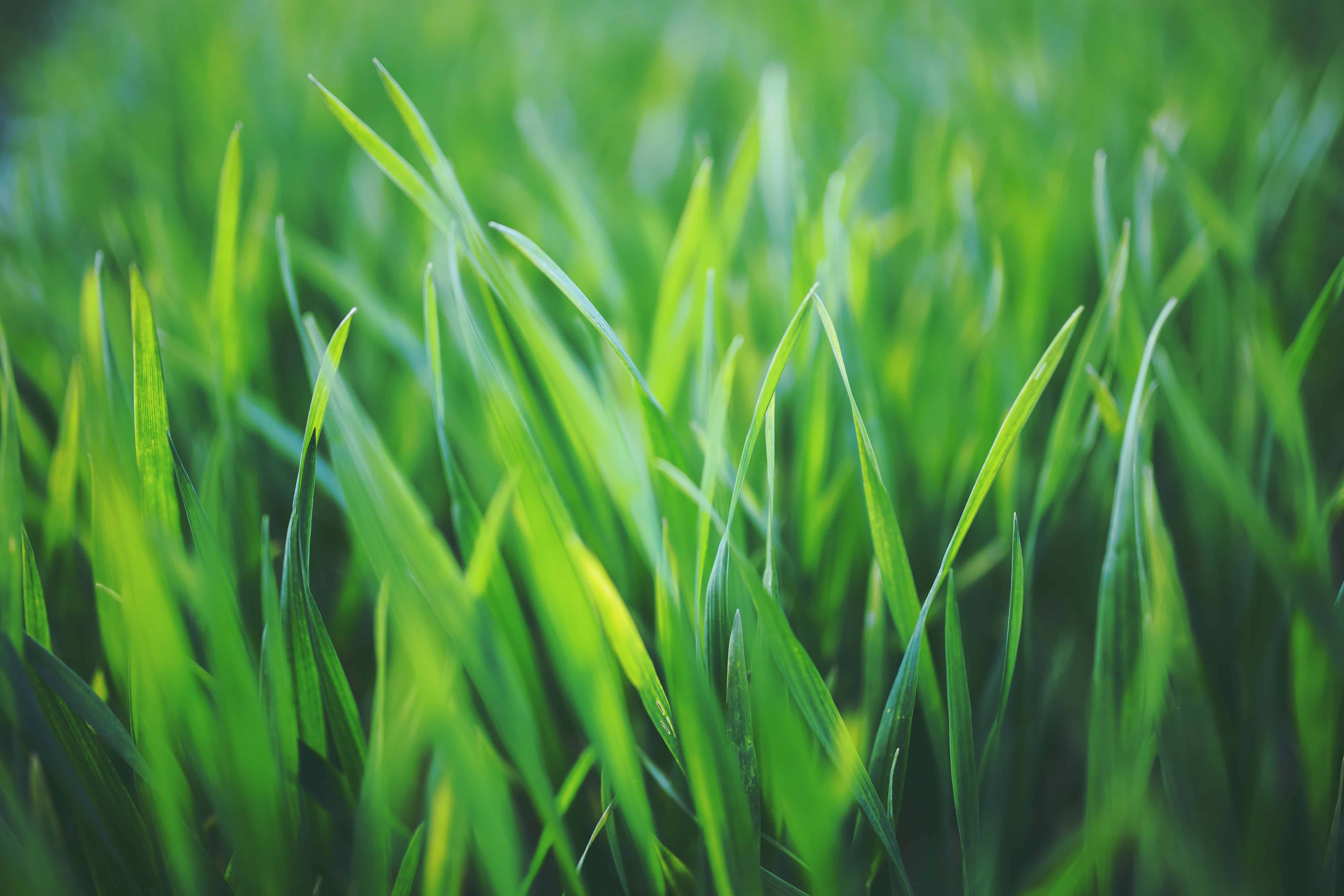
Sowing grass can take a lot of time, effort, and money. The very last thing you want to do is leave its growth and development up to chance, particularly during the first few weeks when it’s at its most vulnerable.
In reality, there isn’t one single solution for how to keep birds from eating grass seed. The choices are endless, so go with the option that suits your lifestyle and budget.
Ultimately, learning how to keep birds from eating grass seed requires a lot of trial and error. The technique that works for your neighbor might not necessarily work for you.
If none of the methods mentioned above tickle your fancy or you can’t be bothered to watch over your new lawn, planting twice as many seeds as you need is generally more than enough to ensure that whatever remains grows into a lush blanket of grass.
Do you have any tips for how to keep birds from eating grass seed? Let us know by commenting down below!
